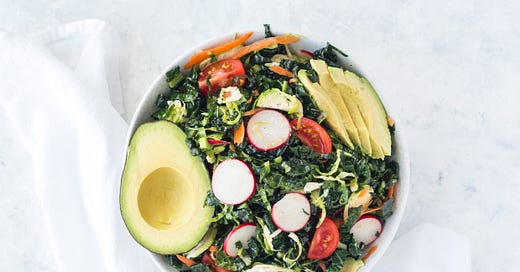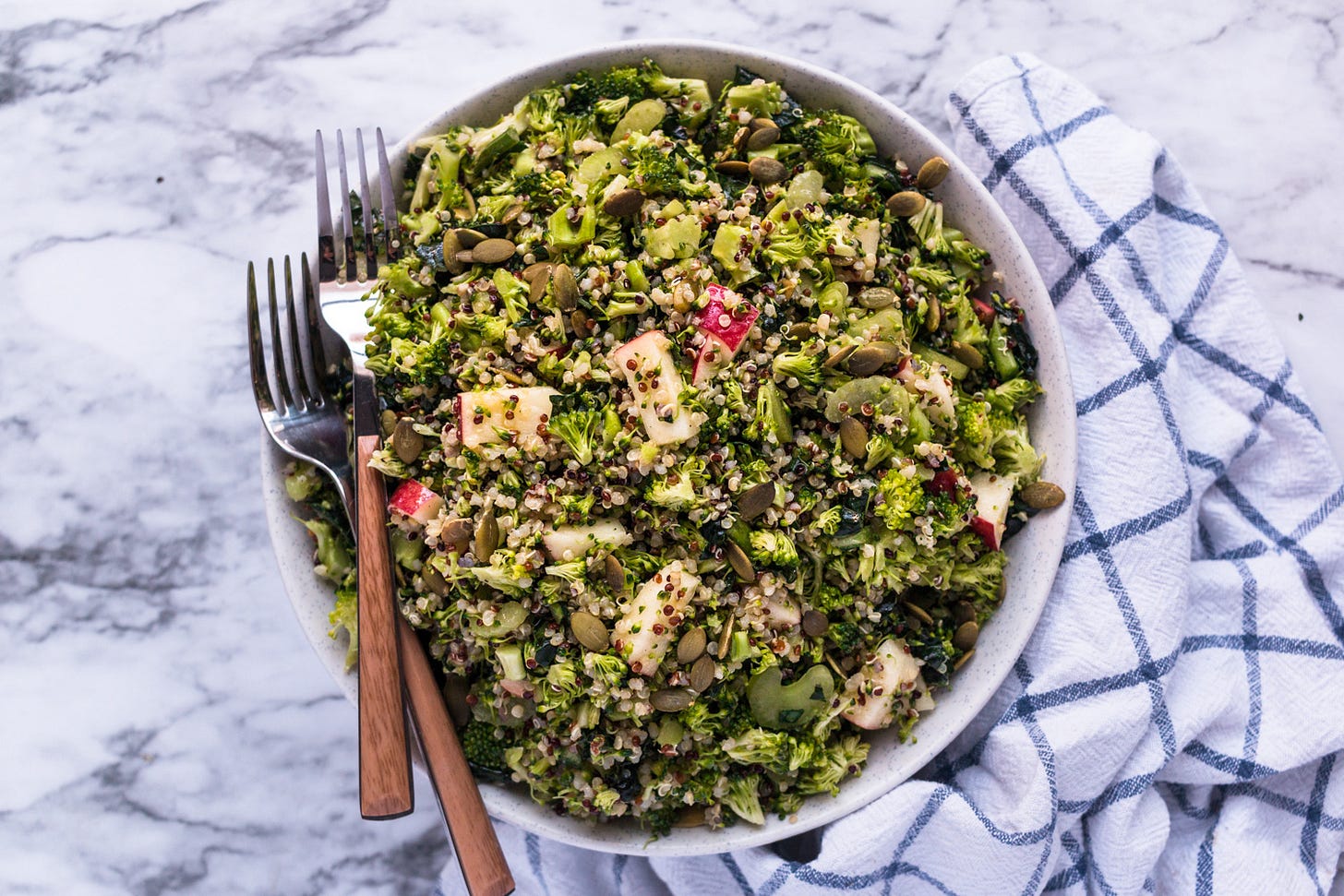Let’s give more air time to your lovely liver. In my last Friday article, “The Liver: Meet Your Inner Worker Bee” we went over liver basics and how it manages cholesterol. Now we will delve into symptoms from a struggling liver, more about its many functions plus what hurts and helps it.
Do you have few or more of these symptoms below?
Are they impacting your daily life?
If so, your liver may be sending you a S.O.S.!
Fatigue- sluggishness - Brain fog
Dark circles or pouches under your eyes- swollen eyelids
Mood swings - hormonal imbalances - feelings of overwhelming stress
Poor digestion- blood sugar imbalances - elevated cholesterol level
Photo by Kinga Howard on Unsplash
As we learn more about this essential organ and it’s function, you can understand why getting to the root cause of your body’s struggles can lead to some of the symptoms we listed above.
Picture your liver functioning like the funnel you have in your kitchen for cooking.
Just like any funnel, it needs a balanced amount of ingredients to be able to pour through it at one time so it doesn’t overflow. Your liver needs the same thoughtfulness to keep the substances flowing smoothly and to prevent clogging (think of the disaster that ensues from a clogged sink). When the liver gets congested, it’s ability to manage fats and cholesterol slows which backs up the funnel leading to health issues.
Your liver is your daily, diligent, hardworking worker bee managing multiple pillars of your health 24/7!
Below are some of its daily tasks. Think about it, it’s amazing how this odd shaped organ manages so many functions - daily!
Every Day. 365 Days a Year.
No Vacation. No Staycation.
No Off Button, No Snooze Button.
Filtration: It diligently filters blood coming from your digestive tract, removing toxins, waste products, and even harmful bacteria. Then it returns clean, purified blood to circulate throughout your body.
Storage: Your liver acts as a storage unit. It holds essential nutrients like vitamins, minerals, and iron until your body needs them. Then they are released into your bloodstream. It also stores glucose (sugar) for quick energy bursts and helps regulate blood sugar levels.
Digestion: The liver plays a crucial role in breaking down and utilizing nutrients from your food. It converts proteins into usable amino acids (the building blocks of proteins), helps digest fats, and manufactures bile, a substance that aids in fat absorption.
Nourishing Fact: We have over 2,000 miles of bile ducts in our liver (that is crazy!).
Waste: Your body produces waste products as it processes food, bacteria, viruses, parasites, and medications. Your liver is your body’s garbage collector, breaking down these waste products and preparing them for elimination through the kidneys and colon. Ideally this results in 2-3 bowel movements per day. Some people get so backed up they have to go to the ER, which is painful experience!
Hormones: Crucially, the liver is also involved in the synthesis and regulation of cholesterol, a key component in hormone production.
Energy: When you eat carbohydrates, your liver converts them into glucose, the primary fuel source for your cells. It also stores glucose as glycogen for later use, ensuring you have steady energy throughout the day. If you feel tired about 1/2 hour after eating processed carbohydrates, fats, and sugary or fried foods, this can mean your liver is like the clogged funnel which struggles to process these substances efficiently and maintain stable blood sugar levels.
Management of Body Fats: The liver breaks down fats from your diet, manufactures certain fats like cholesterol, and helps regulate overall fat levels in your blood. A significant aspect of this happens when the liver produces cholesterol, packages it into lipoproteins, and helps remove excess cholesterol from the bloodstream via bile. When the liver is overloaded or "clogged," this fat management process, including cholesterol regulation, can become less efficient, potentially contributing to elevated cholesterol levels.
Cholesterol Synthesis: The liver is able to adjust its production based on dietary intake. It upregulates cholesterol synthesis when dietary intake is low and downregulates it when intake is high.
Glutathione Synthesis: Glutathione, a master antioxidant, assists with immune function, metabolism of toxins, prevention of oxidative damage, and protein synthesis.
It’s time to treat your liver right! No need for Draino, instead begin with the power of your plate!
What do I “crowd in” to support my liver (and healthy cholesterol levels)?
I advise my clients to add foods for well being: Consume foods that naturally support filtration, digestion, waste, hormones, body fat and energy.
Top liver-loving foods:
Chia Seeds and Flaxseeds: These tiny powerhouses are the richest source of the plant-based omega-3 fatty acid called alpha-linolenic acid (ALA). Both chia and flaxseeds are extremely high in soluble and insoluble fiber, which can support detoxification and gut health and even aid in weight loss. Studies show that these seeds can reduce both total and LDL cholesterol levels, keeping your heart healthy. The soluble fiber content helps trap fat and cholesterol in the digestive system, preventing their absorption. This process also encourages the excretion of bile, forcing the body to produce more and utilize excess cholesterol in the blood, thus lowering overall cholesterol levels. Try sprinkling these seeds on your oatmeal, yogurt, or blending them into smoothies.
Photo by Susan Wilkinson on Unsplash Beans and Legumes: Known for packing in fiber, beans slow down the rate and amount of cholesterol absorption. Research indicates that a diet rich in legumes like lentils, beans, and peas is linked to lower blood cholesterol levels. They also boost antioxidants and beneficial trace minerals that support healthy circulation. Explore options like black beans, chickpeas, kidney beans, mung beans, and others in soups, salads, and, of course, hummus.
Nourishing Tip: Soak your beans overnight to reduce or mitigate issues with gas and bloating.
Avocados: These fruits are one of the world’s greatest sources of heart-healthy monounsaturated fat, the type that can help raise beneficial HDL cholesterol while lowering detrimental LDL cholesterol. Not only have avocados been shown to increase good HDL cholesterol, but they can also reduce total and bad LDL cholesterol. Avocados are also rich in soluble fiber and help stabilize blood sugar levels, in addition to providing anti-inflammatory phytochemicals such as beta-sitosterol, glutathione, and lutein. Beyond guacamole, get creative and add avocado to smoothies, salads, eggs, or even desserts.
Glutathione-Rich Foods: Avocados, okra, spinach, and asparagus are rich in glutathione, a potent antioxidant that helps your liver neutralize toxins and free radicals. Think of it as a built-in bodyguard for your cellular health.
Sulfur-Rich Vegetables: Broccoli, cauliflower, Brussels sprouts, cabbage, kale, bok choy, arugula, and collard greens are loaded with sulfur, a mineral crucial for detoxification processes. Imagine them as tiny brooms sweeping away unwanted debris.
Sulforaphane Powerhouse: Broccoli sprouts, which are the young shoots of broccoli plants, deserve a special shoutout. They have a high concentration of sulforaphane, a phytochemical that neutralizes toxins, reduces inflammation, protects your DNA, and may prevent tumor growth. You can find them at your local grocery store or online at Sproutman.com.

Photo credit: Sproutman
What should I “crowd out” to prevent a clogged liver (and support healthy cholesterol)?
While adding beneficial foods is important, limiting harmful ones is equally critical for a smoothly functioning liver and healthy cholesterol levels.
Alcohol: Excessive alcohol consumption is a major stressor for your liver and can lead to fatty liver disease, liver cirrhosis, hepatic encephalopathy, and liver cancer and other cancers. Aim for moderation or add in mocktails, such as The Mocktail Maven Hibiscus Iced Tea the next time you are enjoying a meal with friends or family (your liver will love you).
Refined Sugar: Sugar overload can contribute to fatty liver disease, blood sugar imbalances, weight gain, and cardiovascular diseases. Opt for whole, unprocessed foods and incorporate The Golden Goddess Plate.
Nourishing Tip: Add in monk fruit or stevia as a sugar alternative.
Over-the-Counter Medications: Consult your doctor before taking any over-the-counter medications regularly, as some can burden your liver. Tylenol, for example, is responsible for 56,000 emergency department visits, 2,600 hospitalizations, and 500 deaths per year in the United States. In addition, Tylenol depletes glutathione which is synthesized in the liver.
Nourishing Note: This is not an exhaustive list. Consult a healthcare professional (I am your gal!) before making any major dietary changes, especially if you have pre-existing health conditions. I curate your path to optimal health as each person differs in how their body functions, which foods their body needs and how much to consume.
IN A WEEK: We will do a deep dive into serious signs of more progressive liver issues and other modalities you can use to Love Your Liver, Thrive, and be a Liver of Life!
Loved this post? Spread the love! Share it with a friend, tap that heart icon below, or show some love in the comments below. You rock!












